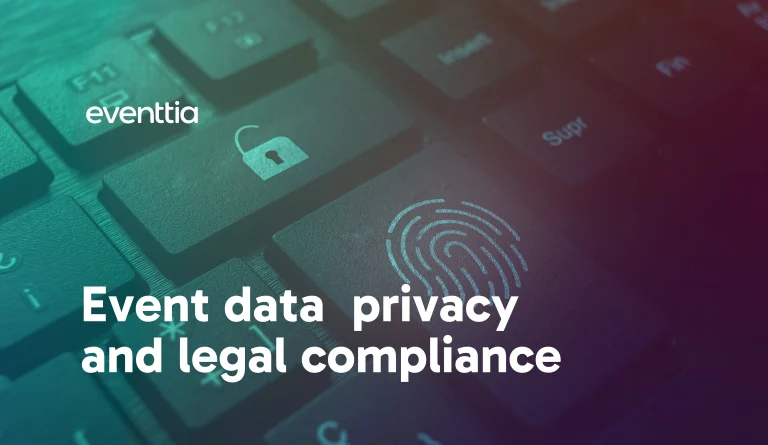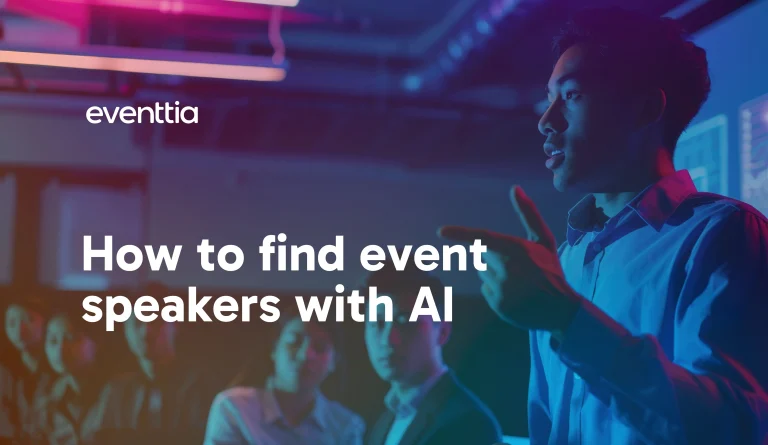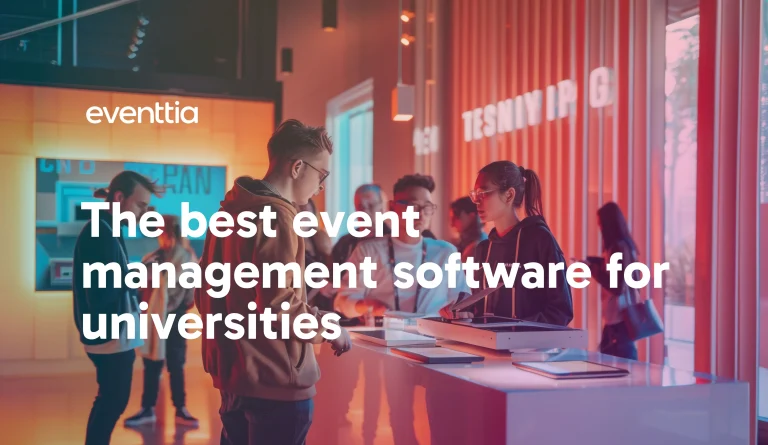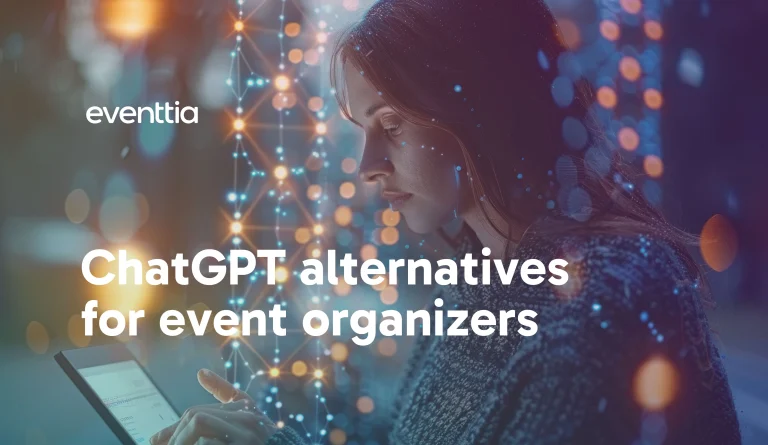GDPR & CCPA for Events: Quick Summary
How can event organizers ensure GDPR and CCPA compliance while managing attendee data?
Data is a double-edged sword → it drives insights and ROI but mishandling it can cause fines, breaches, and reputational damage.
GDPR (EU law) applies globally to any event collecting EU attendee data; requires lawful basis, explicit consent, strong security, and attendee rights management.
CCPA (California law) applies to businesses handling California residents’ data; emphasizes transparency, opt-outs (“Do Not Sell My Data”), and clear privacy notices.
Key compliance steps → audit your data flows, update registration forms, define retention policies, train staff, and partner with compliant vendors.
Technology helps → platforms like Eventtia support consent tracking, secure storage, waitlists, and reporting aligned with privacy frameworks.
Business upside → strong privacy builds attendee trust, improves data quality, differentiates your brand, and drives higher registrations.
Extra considerations → stricter rules apply for children’s data and international transfers, requiring safeguards like parental consent or SCCs.
Data is at the heart of modern events. From registration forms and email campaigns to mobile event apps, the information you collect from attendees provides invaluable insights. It helps you measure ROI, understand which sessions or speakers resonate most, and even personalize experiences so guests feel more engaged.
But with great value comes great responsibility. Mishandling attendee data can result in steep financial penalties, damaged trust, and lasting reputational harm. One breach or poorly managed consent form can undermine years of effort to build credibility with your audience.
At Eventtia, we’ve seen firsthand how much smoother event planning becomes when data privacy is built into the process. By designing event technology that aligns with the CCPA (California Consumer Privacy Act), General Data Protection Regulation (GDPR), and other international frameworks, we help organizers safeguard attendee information while still capturing the insights they need to grow.
Understanding GDPR and Its Global Reach
What Is the GDPR?
When it comes to data protection, no regulation has had as significant an impact on event planning as the GDPR. Introduced by the European Union in 2018, GDPR reshaped the way organizations worldwide collect, process, and store personal information.
The GDPR is a comprehensive legal framework designed to strengthen the rights of individuals over their personal data. It replaced the 1995 Data Protection Directive and created a single, harmonized standard across the EU, simplifying compliance while raising the bar on data protection.
GDPR ensures that personal data (anything from names and email addresses to IP addresses and even biometric identifiers) is handled transparently, securely, and only with valid consent. For event organizers, this means registration forms, mailing lists, and marketing campaigns all need to follow clear rules on how attendee information is collected and used.
Who Does It Apply To?
A common misconception is that GDPR only applies to companies based in the European Union, but that’s not the case. If you collect, process, or store personal data belonging to EU citizens, GDPR applies to you.
For example, if an attendee from France registers for your U.S.-based event, the data you collect from them (such as their email address, dietary preferences, or payment details) is subject to GDPR requirements. This is one reason why many organizations worldwide now use GDPR as their baseline standard for privacy practices.
Key Roles in Data Processing
To understand your responsibilities under GDPR, it’s important to know the three main roles involved in data processing:
- Data Subject: The individual whose personal information is collected. For events, this usually refers to your attendees, but it can also include speakers, sponsors, or staff.
- Data Controller: The party that decides how and why personal data is processed. Event organizers typically fall into this category since they determine what attendee information to collect (e.g., names, contact details, ticket types) and how it will be used.
- Data Processor: A third party that processes data on behalf of the controller. For example, an event management platform like Eventtia acts as a processor, helping organizers design registration forms, run email campaigns, and manage attendee databases.
Under GDPR, both controllers and processors have legal obligations, but controllers carry the primary responsibility for ensuring compliance. This means event organizers must carefully choose vendors and partners who also uphold strict data protection standards.
Understanding CCPA and Its Role in U.S. Events
While the GDPR is often seen as the most influential privacy regulation globally, the CCPA is the United States’ most significant step toward comprehensive data privacy. For event organizers, especially those with attendees or leads from California, understanding CCPA is just as critical as GDPR compliance.
What Is the CCPA?
The CCPA is one of the most influential U.S. privacy laws, often compared to the GDPR in scope and importance. It grants California residents key rights over their personal data, including:
- The right to know what personal information is being collected and why
- The right to opt out of data sales
- The right to request deletion of personal information
For event organizers, this means being transparent about how attendee data is collected, shared, or monetized. Even if your company is not based in California, you may still fall under the CCPA if you process data from California residents and meet certain business thresholds (e.g., revenue or volume of data handled).
Who Does It Apply To?
The CCPA does not automatically apply to every business; it targets organizations that meet specific thresholds. It applies to for-profit businesses that do business in California and meet at least one of the following criteria:
- Have annual gross revenues over $25 million.
- Buy, sell, or share the personal information of 100,000 or more California residents, households, or devices per year.
- Derive 50% or more of their annual revenue from selling California residents’ personal data.
Even if your organization is not based in California, the law still applies if you have California attendees or market your events to California residents. For event planners working nationally or globally, this makes the CCPA a key regulation to understand.
GDPR Requirements Event Planners Must Know
Understanding GDPR’s key requirements ensures that your event avoids potential penalties and builds trust with participants who want to know their data is safe. Below are the most important principles and obligations every planner should keep in mind.
Data Minimization and Purpose Limitation
GDPR emphasizes that you should only collect the data you need for a specific, clearly defined purpose. For example, if you’re hosting a conference, you may need names, email addresses, and dietary preferences, but not unrelated details like home addresses unless absolutely required. Data should never be collected “just in case.”
International Data Transfers
If attendee data leaves the EU (e.g., stored on U.S. servers), organizers must ensure safeguards like Standard Contractual Clauses (SCCs) or transfers to countries with adequacy decisions. This is especially relevant if your vendors are cloud-based.
Consent vs. Legitimate Interest
Not all data processing requires explicit consent. Sometimes, “legitimate interest” (such as preventing fraud or managing event logistics) can serve as a lawful basis. However, planners must carefully assess and document why legitimate interest applies, and ensure it doesn’t override the rights of the attendee.
Consent and Transparency
Where consent is required (such as for marketing emails or collecting sensitive personal data), it must be clear, specific, and freely given. Pre-ticked boxes or vague statements won’t pass GDPR standards. Attendees should also know exactly how their information will be used, in plain language.
Attendee Rights Under GDPR
Attendees (“data subjects”) have a suite of rights under GDPR, including:
- The right to be informed
- The right to access their data
- The right to correction (rectification)
- The right to erasure (“the right to be forgotten”)
- The right to restrict processing
- The right to data portability
- The right to object
- Rights related to automated decision-making/profiling.
Event organizers must have processes in place to honor these requests promptly.
Breach Notification Rules
If a data breach occurs, organizations must notify their supervisory authority within 72 hours of becoming aware of it, unless the breach is unlikely to result in risk to individuals. In cases where the breach poses a high risk, affected attendees must also be informed.
Data Security Requirements
GDPR requires that event planners implement “appropriate technical and organizational measures” to protect data. This can include encrypting attendee lists, limiting access to authorized staff, and using secure event management platforms that follow best practices in cybersecurity.
Data Protection Officers (DPOs)
Some organizations, particularly larger event companies or those handling large volumes of sensitive data, are required to appoint a Data Protection Officer. The DPO is responsible for overseeing compliance and acting as a contact point with regulators and data subjects. Even if not mandatory, many organizations find it beneficial to have a privacy lead.
CCPA Requirements and Guidelines for Events
For event organizers, compliance with the CCPA goes beyond just knowing who it applies to. It requires adapting data collection, storage, and communication practices. Here are the key requirements and guidelines event professionals should keep in mind.
Transparency in Data Collection
Under the CCPA, businesses must be transparent about the data they collect. For events, this often means updating registration forms, ticketing platforms, and mobile apps to:
- Clearly state what information is being collected (e.g., names, emails, browsing activity on event platforms).
- Disclose why the data is being collected (e.g., communication, event access, or marketing).
- Explain how the data will be shared, such as with sponsors, partners, or third-party vendors.
This transparency should be outlined in your event’s privacy policy, which must be easily accessible to attendees.
Honoring Consumer Rights
Attendees who are California residents have specific rights under the CCPA. Event organizers should prepare processes to honor these, including:
- Access Requests: Allowing attendees to request a copy of their personal data collected during event registration or participation.
- Deletion Requests: Providing a way for attendees to request their data be removed (unless it’s required for legal or operational reasons).
- Opt-Out of Sale: If event data is shared with sponsors or advertisers in a way that qualifies as a “sale,” attendees must be able to opt out. This often requires including a “Do Not Sell My Personal Information” link on event websites or apps.
Vendor and Sponsor Management
Because events often involve third parties, such as ticketing platforms, marketing agencies, or sponsors, organizers must ensure that partners comply with CCPA rules. This means:
- Updating contracts with vendors to reflect CCPA responsibilities.
- Informing sponsors how attendee data can and cannot be used.
- Ensuring attendee opt-out requests are respected across all partners.
Notice at Collection
CCPA requires a “notice at collection”, which means informing attendees at the time their data is collected. For events, this can be:
- A consent checkbox on registration forms.
- A pop-up notice on event apps.
- A pre-event communication outlining how data will be handled.
Data Security Measures
Although the CCPA does not prescribe specific security standards, businesses are expected to take “reasonable measures” to protect personal information. For event organizers, this can include:
- Encrypting sensitive attendee data.
- Limiting access to personal data within the event team.
- Using secure event management software that adheres to industry best practices.
GDPR vs. CCPA: A Side-by-Side Comparison for Event Organizers
Now that we’ve explored each regulation individually, here’s a quick comparison to highlight their key differences and similarities.
Aspect | GDPR (General Data Protection Regulation) | CCPA (California Consumer Privacy Act) |
Jurisdiction | Applies to all organizations processing data of EU citizens, regardless of company location. | Applies to for-profit businesses doing business in California that meet revenue/data thresholds. |
Personal Data Covered | Very broad: names, emails, IP addresses, biometric data, etc. | Covers information that identifies, relates to, or could reasonably be linked with a California resident or household. |
Who It Protects | EU citizens (data subjects). | California residents (consumers). |
Key Rights | Access, correction, erasure (“right to be forgotten”), restriction, portability, objection, rights against automated decision-making. | Right to know, right to delete, right to opt out of data sales, right to non-discrimination. |
Legal Basis for Processing | Requires lawful basis (consent, contract, legitimate interest, etc.). | No explicit lawful basis requirement; focuses on transparency and opt-out options. |
Consent | Must be explicit, specific, and freely given (no pre-ticked boxes). | Consent not central; main focus is providing opt-outs (e.g., “Do Not Sell My Personal Information”). |
Breach Notification | Supervisory authority must be notified within 72 hours; high-risk breaches also require notifying individuals. | No specific timeframe, but businesses are expected to maintain “reasonable security procedures.” |
Vendor/Processor Responsibility | Both controllers and processors have direct obligations. | Businesses must ensure contracts with vendors reflect CCPA obligations. |
Penalties | Up to €20 million or 4% of annual global turnover (whichever is higher). | Up to $7,500 per intentional violation; $2,500 per unintentional violation. |
Global Impact | Considered the gold standard; many countries model laws after GDPR. | Major U.S. privacy law; influenced other state laws (e.g., Virginia, Colorado). |
As you can see, GDPR and CCPA share many similarities but also have important differences in scope and requirements. Understanding both helps event organizers stay compliant across regions.
Practical Steps to Ensure Legal Compliance at Events
Understanding the CCPA and GDPR is one thing, but applying them to your event is another. To reduce risks and maintain attendee trust, event organizers should integrate data protection practices into their workflows from the very beginning. Here’s how.
Step 1: Conduct a Data Audit
Start by mapping out the types of personal data you collect, where it’s stored, and who has access. This includes registration forms, email lists, payment records, and third-party apps. Knowing your data flow is the foundation of GDPR and CCPA compliance.
Step 2: Update Registration Forms and Opt-Ins
Ensure your registration forms only collect data you truly need, and that opt-ins for marketing are clear and unambiguous. Avoid pre-checked boxes and provide attendees with the option to consent to specific types of communication.
Step 3: Keep Data Clean and Up to Date
GDPR and CCPA emphasize data accuracy. Regularly review your databases to remove outdated or incorrect information. This not only ensures compliance but also improves the quality of your event marketing and personalization.
Step 4: Review Your Mailing Lists
Under CCPA and GDPR, you cannot continue emailing contacts who never consented to receive marketing messages. Audit your lists to confirm you only retain contacts with valid, documented consent, or another lawful basis for communication.
Step 5: Train Your Team
Your staff should understand the basics of GDPR, especially those handling attendee data. Training ensures everyone knows how to manage personal information securely, respond to attendee requests, and avoid accidental breaches.
Step 6: Partner with GDPR-Compliant Vendors
From ticketing platforms to mobile event apps, your vendors must also comply with CCPA and GDPR. Review their privacy policies, data-sharing agreements, and contracts to ensure data is processed responsibly and in line with the required standards.
Step 7: Use Technology Wisely
Event management software like Eventtia can streamline CCPA and GDPR compliance by offering features such as consent tracking, secure data storage, and easy-to-manage attendee preferences. Using the right tools reduces manual errors and strengthens your compliance.
Step 8: Define Clear Data Retention Policies
CCPA and GDPR prohibit holding onto personal data longer than necessary. Define policies for how long you’ll retain attendee information (e.g., one year post-event) and ensure old data is securely deleted once it’s no longer needed.
Step 9: Prepare an Incident Response Plan
Despite best efforts, data breaches can happen. GDPR requires that most breaches be reported within 72 hours. Having a written response plan, including designated roles, notification templates, and escalation procedures, will save critical time.
Step 10: Assess Vendor Risks Regularly
Continuously assess the vendors you work with to ensure they maintain strong data protection practices, especially if they update their systems or change how they handle attendee information. Sign Data Processing Agreements (DPAs) with vendors, and review their security certifications (ISO, SOC 2) and compliance practices yearly.
Beyond CCPA and GDPR: Other Relevant Privacy Regulations
While the CCPA and GDPR are often seen as the global benchmark for data protection, event planners must be aware of other privacy laws that may impact their work. Depending on where your attendees live or where your event is hosted, you could be subject to additional requirements beyond CCPA or GDPR. Staying informed ensures your compliance and strengthens trust with participants.
Other Frameworks to Watch
Global awareness around data protection continues to grow, and many regions are following GDPR’s lead:
- Brazil’s LGPD (Lei Geral de Proteção de Dados): Inspired by GDPR, LGPD regulates personal data use in Brazil and applies to organizations handling data from Brazilian residents.
- Canada’s PIPEDA (Personal Information Protection and Electronic Documents Act): Governs how private-sector organizations collect, use, and disclose personal information in Canada.
- APAC Regulations: Countries like Singapore (PDPA) and Australia (Privacy Act) are actively refining their data protection frameworks, especially in digital event spaces.
Event organizers should take a global view of data privacy, anticipate overlapping rules, and implement adaptable strategies. Working with a CCPA and GDPR-compliant platform like Eventtia can simplify this process and help ensure best practices are followed everywhere you operate.
Emerging Regulations to Watch
New frameworks like the EU’s AI Act (impacting profiling and automated decision-making) and evolving U.S. state-level laws (Colorado, Virginia, Connecticut, Utah) are reshaping data privacy. Virginia’s VCDPA (Virginia Consumer Data Protection Act) and Colorado’s CPA (Colorado Privacy Act) impose CCPA-like requirements on companies that process personal data from their residents.
Beyond GDPR, the EU is developing the Digital Services Act (DSA), which regulates how online platforms handle user data, and the AI Act, the world’s first broad framework for governing artificial intelligence. Since event organizers increasingly rely on AI-driven tools like facial recognition, smart matchmaking apps, and automated marketing, these new laws may directly impact event tech usage.
Penalties for Non-Compliance
Failing to comply with CCPA or GDPR can be costly. Beyond potential fines, mishaps can expose organizations to class-action lawsuits, mandatory corrective actions, and reputational damage. Below are notable cases highlighting the serious consequences of non-compliance.
In 2018, British Airways suffered a data breach that compromised nearly 400,000 customers’ personal and payment information due to weak security protocols. The UK’s Information Commissioner’s Office (ICO) initially proposed a £183 million fine (1.5% of turnover), eventually reduced to £20 million due to the impact of COVID-19.
Similarly, Marriott was fined nearly £99.2 million (€110 million+) by the ICO following a major breach that affected around 339 million guest records, many belonging to EU residents. The breaches were traced back to inadequate due diligence during Marriott’s acquisition of Starwood Hotels.
The Business Benefits of Strong Data Privacy
While CCPA and GDPR compliance is often framed as a legal obligation, treating data privacy as a core part of your event strategy delivers far more than just risk mitigation:
Builds Attendee Trust and Loyalty
In a digital world where data breaches are unfortunately common, attendees value organizations that safeguard their personal information. By being transparent about how you collect, store, and use data, you demonstrate respect for your attendees’ privacy. This builds confidence and fosters long-term loyalty, making participants more likely to return to your future events.
Provides Higher-Quality, More Engaged Data Sets
When attendees trust your process, they’re more willing to share accurate and meaningful information. This results in higher-quality data that can be used for personalization, engagement tracking, and post-event insights. You end up with lean, relevant datasets that drive better ROI for your events.
Differentiates Your Event Brand as Professional and Trustworthy
Strong data privacy practices signal that your event brand takes professionalism seriously, and attendees, sponsors, and partners see this as a marker of credibility. Positioning yourself as a trustworthy steward of data can directly impact your registrations, sponsorships, and long-term event success.
Children’s Data in Events
If your event involves minors, stricter consent applies. In the EU, parental consent is required under 16 (or as low as 13, depending on the country). In the U.S., COPPA governs data from under-13 participants. Registration systems should be adapted for these scenarios.
When planning family-friendly events, educational programs, or youth-focused activities, handling children’s data requires extra care. CCPA and other privacy regulations place stricter rules on collecting and processing personal information from minors, including health information, photographs, or location details.
If you’re hosting a youth sports camp, for example, you may need to collect medical details (like allergies) for safety reasons. In such cases, limit collection to what’s strictly required, store it securely, and delete it once the event concludes. For activities involving photos or video, always obtain explicit parental consent before using children’s images in marketing or promotional materials.
Key Takeaways: How Eventtia Helps With GDPR Compliance and Overall Data Privacy
Collecting and analyzing participant data is essential for hosting successful events. It helps you measure ROI, personalize experiences, and plan smarter for the future. But mishandling attendee data can lead to steep financial penalties, legal complications, and lasting reputational harm.
The GDPR and CCPA regulations have set the global gold standard for protecting personal data, and emerging state- and country-level laws are following closely behind. By auditing your data practices, updating forms and policies, training your team, and partnering only with GDPR-compliant vendors, you’ll not only reduce legal risk but also build trust with your attendees.
Eventtia can help you streamline compliance and safeguard attendee trust while still giving you the insights you need to run unforgettable events. For more details, discover Eventtia’s privacy policy. If you’d like to learn more about how we handle data privacy and legal compliance: Speak with our team today.
Data Privacy and Legal Compliance FAQs for Event Organizers
Do I need a Data Protection Officer (DPO)?
You only really need a DPO if you process large-scale sensitive data, track individuals extensively, or are a public body. Most small or medium-sized events don’t need a data protection officer.
Can I email past attendees about new events?
Yes, but only if you have valid consent or another lawful basis for contacting past attendees. Always provide a clear opt-out for those who no longer wish to receive communications from you.
What if my event is small, do these rules still apply?
Yes. GDPR applies regardless of event size if EU citizen data is processed.
Can I share attendee data with sponsors or partners?
Yes, but only if attendees have been clearly informed at the time of registration and given explicit consent for their data to be shared. If partner marketing is involved, make sure you include a separate opt-in checkbox.
How do I handle photography and video at events?
Photos and recordings count as personal data if individuals are identifiable. Always inform attendees in advance via signage or registration form disclaimers. For close-up interviews or features, make sure you obtain explicit consent.
What should I do if an attendee requests that their data be deleted?
You must comply unless there’s a lawful reason to retain it (e.g., tax or accounting records). Deletion should extend to all systems and third-party vendors holding that attendee’s data.
Can I use attendee data for future marketing campaigns?
Only with prior consent or another lawful basis. If consent was given for one event, it doesn’t automatically extend to future events unless that was clearly stated.
What counts as “sensitive data” in events?
Information like health details (dietary restrictions, accessibility needs), religious preferences (e.g., kosher meals), or political affiliation. Collect this type of information only when necessary and handle it with extra safeguards like encryption or restricted access.
What happens if a vendor I use suffers a data breach?
As the Data Controller, the event organizer is still responsible for compliance. You must ensure your vendors notify you promptly so you can meet GDPR’s 72-hour reporting rule.
Discover how Eventtia helps world-leading brands digitize and scale their events
Learn moreShare





